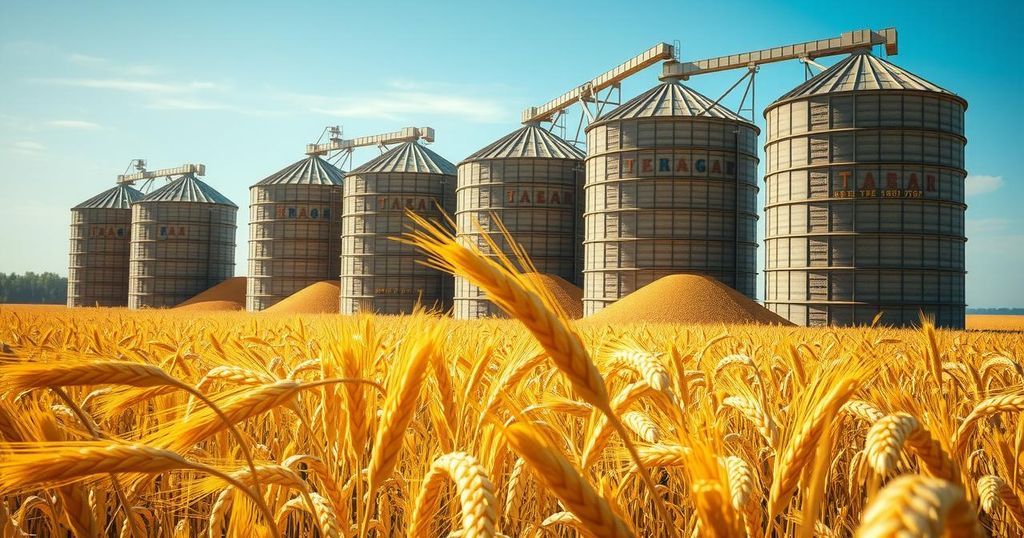Brazil’s CONAB is set to receive an additional R$350 million to enhance food reserves as part of a strategy to combat food inflation. The budget for stockpiling could reach R$539.9 million, pending price conditions. Minister Paulo Teixeira seeks an extra R$1 billion for 2025. Discussions are ongoing about operational flexibility and legislative adjustments amid considerations to ensure farmers’ protections.
Brazil’s National Supply Company (CONAB) will receive an additional R$350 million in funding to strengthen its regulatory stocks of essential food items like rice, beans, and corn. This increase is part of a broader governmental strategy to mitigate food inflation. The total funding for CONAB’s purchases and storage could reach R$539.9 million, depending on market price movements, with a significant increase compared to the R$124 million allocated in 2024.
The current budget for stockpiling activities, as proposed in this year’s Annual Budget Bill, amounts to R$189.9 million and awaits Congress’s approval. Edegar Pretto, President of CONAB, articulated that a prospective bumper crop could see declines in some product prices, creating an opportune moment to build reserves and support farmers. Funds from the Minimum Price Guarantee Program are expected to be reallocated for this purpose.
Agrarian Development Minister Paulo Teixeira has requested an extra R$1 billion for stockpiling in 2025, aiming to secure as much as 1.2 million tonnes of grains. This year, CONAB anticipates purchasing a minimum of 445,000 tonnes, including substantial quantities of rice and corn. Discussions regarding additional wheat purchases remain undeclared, as quantities have yet to be specified.
Under President Lula’s directive to boost regulatory stocks, legislative changes to enhance CONAB’s operational capacities will be proposed. The Ministry of Agrarian Development is proceeding with caution to avoid any measures that might exacerbate agricultural prices during high market conditions. Current Brazilian statutes permit stockpiling only when prices fall below set minimums, restricting CONAB’s intervention to protect farmers’ incomes.
The initiative is still in preliminary discussions among various government ministries, with Mr. Pretto emphasizing the importance of government consensus in decision-making. A government official noted limitations that prevent entering high-price markets, suggesting that a provisional measure could provide necessary authorizations without altering existing PGPM laws.
In response to these challenges, CONAB is set to offer public sale option contracts with premiums up to 20% above minimum prices for rice and beans, which proved successful last year. Additionally, under specific circumstances, CONAB can procures corn through the Direct Sale Program, benefiting farmers and small-scale livestock producers.
Mr. Pretto indicated that funding for public storage will become available once prices stabilize, mirroring Vice President Geraldo Alckmin’s commitment to financial support for CONAB. However, economist Guilherme Bastos critiques the focus on stockpiling funds, advocating for instead investing in income transfer or food distribution programs. He cautioned against high-price stock purchases potentially leading to market volatility. In response to such critiques, Mr. Pretto stressed the significance of maintaining reserves for national food security.
In summary, Brazil is taking decisive action to address food inflation through increased funding for CONAB and the strategic accumulation of essential food reserves. The government is exploring broader operational adjustments while adhering to existing regulations. Discussions continue around the balance between stockpiling and market protections, underscoring the need for a thoughtful approach as Brazil navigates its agricultural policies and national security concerns.
Original Source: valorinternational.globo.com




